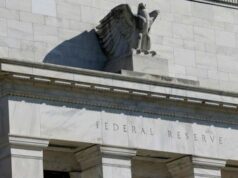BSP still has policy space — Diokno
By Luz Wendy T. Noble, Reporter
THE manageable inflation environment continues to afford the central bank with policy space that can be used to respond to the pandemic, Bangko Sentral ng Pilipinas (BSP) Governor Benjamin E. Diokno said on Wednesday.
“The relatively benign inflation outlook in the policy horizon provides space for monetary policy adjustments to complement the National Government’s efforts in mitigating the adverse impact of the public health crisis,” he said at the Pre-SONA (State of the Nation Address) Forum of the Economic Development and Infrastructure Clusters.
Mr. Diokno’s remarks came a day after government data showed quicker-than-expected 2.5% headline inflation in June. The June print was slower than the 2.7% in June 2019 but faster than the 2.1% in May, largely driven by the uptick in fuel, food, and transport prices.
“Kung tutuusin (If you think about it) that’s still lower than the midpoint, our target is 2-4%. Nasanay kasi tayo sa mga mababa 2.1% (We were just used to very low inflation),” he said in a virtual press conference after the forum.
“But it’s still consistent with our forecast that inflation will be benign for the next three years, so wala tayong dapat ikabahala sa inflation (so there’s nothing to worry about inflation),” the BSP chief added.
In June, the central bank slashed key policy rates by 50 basis points (bps) on its fourth easing this year, trimming the overnight reverse repurchase, lending, and deposit rates to 2.25%, 2.75%, and 1.75%, respectively.
The central bank has likewise slashed the reserve requirement ratio (RRR) of big banks by 200 bps in April to 12%, while it kept reserve requirement for thrift and rural banks at four and three percent, respectively. The Monetary Board is authorized to reduce RRR by up to 400 bps this year to boost liquidity amid the crisis.
The central bank has also forged a P300-billion repurchase agreement with the Bureau of the Treasury, and repurchased government securities in the secondary market as part of efforts to support the government’s coronavirus response.
“The estimated BSP liquidity injection to the financial system is about P1.3 trillion, equivalent to 6.4% of the country’s GDP (gross domestic product),” Mr. Diokno said.
Meanwhile, analysts said another round of easing will be less beneficial to the economy, given that real interest rates are now in negative territory after the uptick in inflation.
In a research note sent to reporters on Wednesday, the Philippine National Bank (PNB) said the country’s real policy rate is now down to -0.25% as overnight reverse repurchase stood at 2.25%. This would even fall to -0.75% if the basis is the 1.75% deposit rate, it added.
“This is the lowest compared with other ASEAN countries we follow, such as Malaysia (+4.90%), Thailand (+3.94%), Indonesia (+2.29%), and Vietnam (+1.33%),” the PNB report said.
“Given this relatively aggressive monetary accommodation, we believe that the Monetary Board of the BSP may have a more challenging task of balancing supporting economic growth amid COVID-19 but still promoting price stability,” it added.
Bank of the Philippine Islands Lead Economist Emilio S. Neri, Jr. said the prospects of higher inflation in the next months could prevent the BSP from further easing as benefits from more rate cuts “may be marginal already.”
“Businesses will most likely control their capital expenditures despite the low interest rate environment given the risks and uncertainties in the country. Meanwhile, banks are likely to remain risk averse given the risk of massive corporate revenue losses,” Mr. Neri said in a note sent to reporters on Wednesday.
Mr. Neri said substantial stimulus from the government to offset losses from the private sector as well as improvement in the health crisis will be most needed by the economy at this point.



